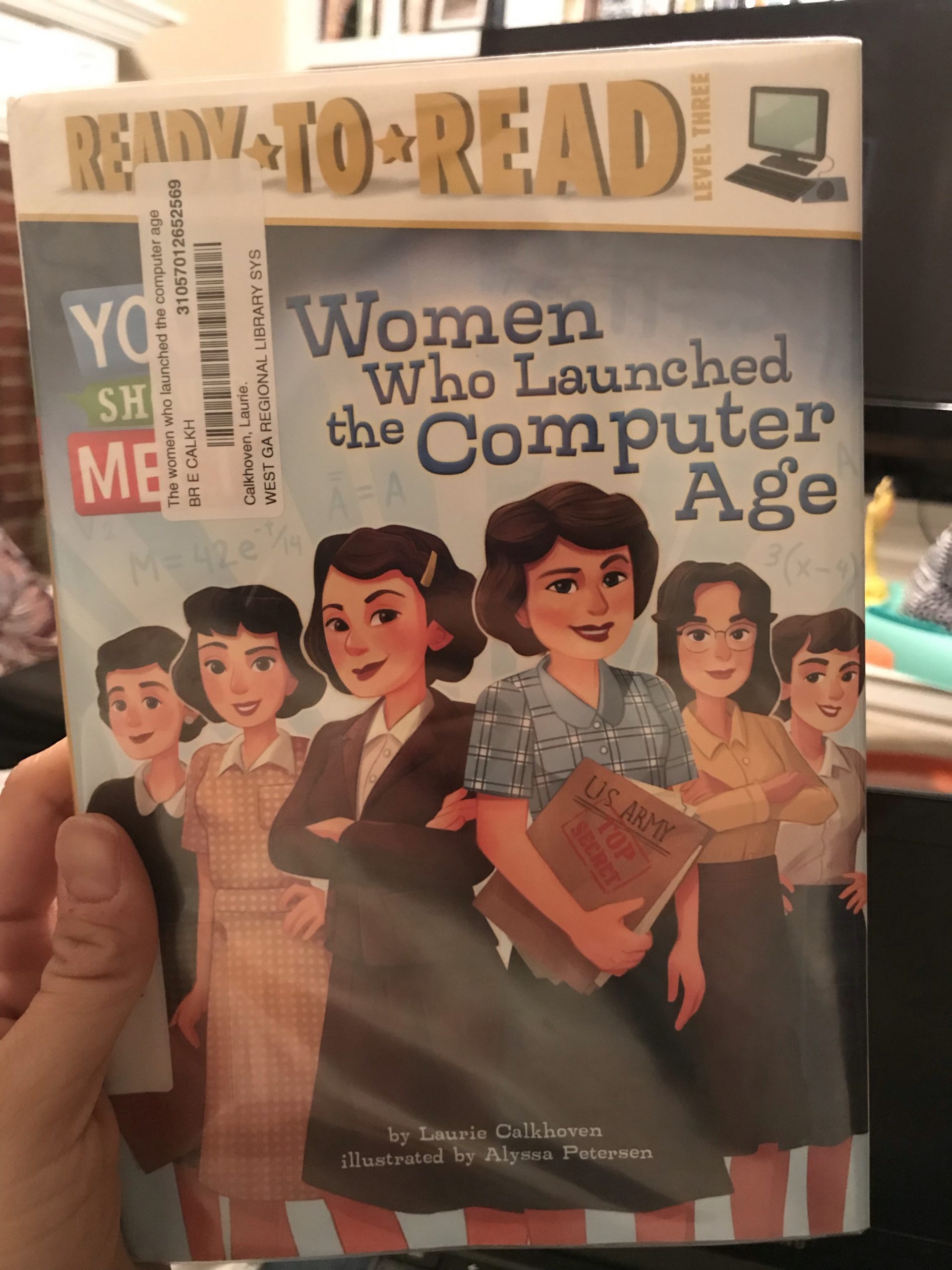This post contains affiliate links. Read the full disclosure here.
This awesome book was in our library haul this week. It teaches a forgotten piece of the past.
If you’ve read my article on using public libraries as a homeschool resource, then you know that I let my kids choose whatever books look interesting to them. We use those books throughout the week to practice reading.
Learning to read and reading to learn
Learning to read is not the only benefit to checking books out from the library. Our library picks give us a jumping off point to learn more about things that I otherwise may not have known about or thought about to study during our regular homeschool time. So, not only are my kids learning to read, but they are reading to learn!
Women Who Launched the Computer Age
This week we brought home Women Who Launched the Computer Age by Laurie Calkhoven. It is a “Level 3” book in the “Ready to Read” reading system. This is the highest level in the system and is therefore a little too difficult for my 6-year-old to read on her own, but it is still a great book for me to read to all of the kids.
This was a tremendous opportunity for my girls to learn about some of the first computer programmers. The story of these intelligent, hardworking and amazing women was once virtually unknown.
Fortunately for us, it was not completely lost to history and it is now here to inspire us. This is a story for people of every age and sex, but I believe it is particularly important for my girls to know these kinds of stories as they are starting out their “academic careers.”
The Computer Age
My family uses computers every day. In fact, the Ron Paul Curriculum is a computer-learning-based curriculum. TVs, phones, watches and even cars contain computers. Computers aren’t going anywhere anytime soon and computer programming is going to be more important to our children than it has to any generation before.
My children even got their first coding robot (“Botley”) as a Christmas gift! I don’t want to force my children into any specific future or line of work. They do not have to be computer programmers.
However, I do want to prepare them in such a way that they will be able to choose whatever they are interested in. I don’t want any path to be closed off to them because their education is lacking. Computer programming is one of those areas that I believe they ought to be at least acquainted with.
What do these women teach us?
Whether or not they decide to become proficient in computer programming, I want my children to know the history behind it. I want them to see the example that these capable and intelligent women set. I want them to know that girls can be good at math. I want them to know that if you are good at something and passionate about it, the work is worth doing even if it seems like no one understands or appreciates it.
Each of the six women in the book was a unique person. They taught us that it is okay to be daughters, sisters, wives, mothers, athletes, teachers, friends, travelers and computer programmers! They didn’t do their work for fame, fortune, titles or accolades. They were using their gifts and talents to serve others and to help end a war. After the war was over, there was still value in the work they were doing. There is still value in this line of work today!
World War II
This book also gave us an opportunity to talk a little bit more about World War II. I kept the information to an age appropriate level, which of course may mean different things to different people. We talked about good men and women taking a stand against the evil and hate that Hitler and the Nazis were spreading across Europe.
To my children this all seems like ancient history, so I brought it back to something tangible by telling them about the 3 out of 4 of their great grandfathers, one still living, who are veterans of this war. Many people have been affected by World War II in some way.
Organic Learning
I am very glad to have the opportunity to introduce my kids to history in such an organic way. It is our local library that helps make this possible!
If you are interested in this book but don’t have access to a library or your library doesn’t have this book, you can find it here on Amazon. (Maybe you would like to give a copy to your local library!)
